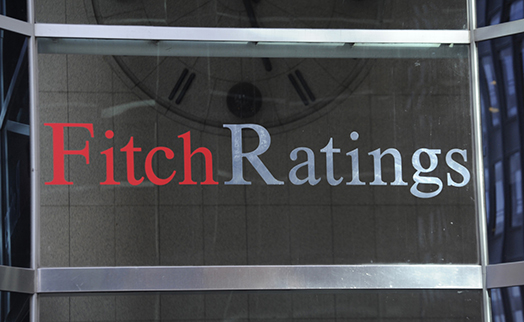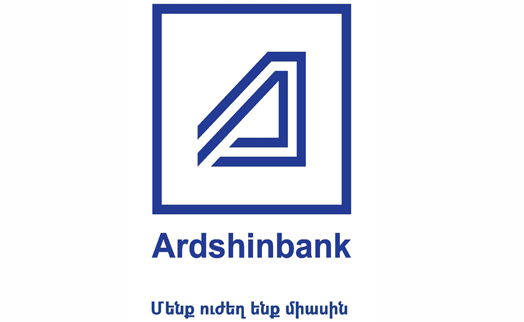17.04.2020 10:56

YEREVAN, April 17. /ARKA/. Fitch Ratings has revised the Outlooks on ACBA-CREDIT AGRICOLE CJSC's (ACBA) and Ardshinbank CJSC's (Ardshin) Long-Term Issuer Default Ratings (IDRs) to Negative from Stable and affirmed the IDRs at 'B+', according to the agency’s press release.
The rating actions reflect the significant deterioration in the outlook for Armenia's economy since Fitch affirmed the banks' ratings with Stable Outlooks on 19 March 2020.
“Under Fitch's baseline scenario, GDP growth will slow significantly in 2020 to 0.5%, compared with 7.5% in 2019, before recovering in 2021. Government subsidies to priority segments and co-financing under the coronavirus response package (equivalent to 2.3% of GDP) will soften the economic shock, but uncertainty about the extent and the duration of the health crisis implies material downside risks to our baseline forecasts,” the rating agency says in its press release.
Fitch recently revised the Outlook on the sovereign rating in light of the anticipated adverse impacts of the coronavirus outbreak. The rating agency says it revised the sector outlook for Armenian banks to negative from stable as it expects that weaker business activity, lower household incomes (due to higher unemployment and lower remittances) and potentially greater currency volatility will increase performance pressures and risks to banks' financial profiles.
“We expect regulatory forbearance measures to help banks manage problem assets and solvency metrics in local accounts, reducing the risk of capital breaches. However, we believe Armenian banks generally have limited flexibility to cope with the current economic challenges given vulnerable asset quality, limited earnings resilience and moderate regulatory capital buffers,” it says.
Key Rating Drivers
“The revision of the Outlooks to Negative reflects our view of near-term pressures on the banks' financial profiles from the economic downturn and operating challenges resulting from the coronavirus crisis. We expect asset quality to deteriorate, in particular in the most vulnerable lending segments such as SMEs and households, to which both banks have sizeable exposures (a combined 75% of loans at ACBA and 54% at Ardshin at end-2019),” Fitch says in its press release.
The rating agency’s analysts think, government assistance to the private sector, including SMEs and some households, will cushion the negative impact on banks' asset quality to an extent but not eliminate it.
The depreciation of the dram has been limited so far (by 1.2% year-to-date). However, both banks' large shares of foreign-currency lending (30% and 50% of loans, respectively at end-2019) heighten credit risks.
“We expect profitability to be constrained by slower lending, reduced client activity and higher impairment charges, related in particular to recent retail growth and legacy corporate exposures and foreclosed assets (the latter notably at Ardshin). A depreciation-driven rise in risk-weighted assets would exert additional pressure on capital,” Fitch says in its report.
The Fitch affirmed both banks' IDRs as it assesses they have moderate headroom to absorb some financial deterioration at their ratings. This reflects their currently moderate levels of impaired loans (3.5% of loans at ACBA and 6% at Ardshin at end-2019), better-than-sector average profitability (operating profit/average assets ratios of 2.2% and 1.9% in 2019, respectively), available capital buffers (regulatory total capital ratios of 14.6% and 15.4%, respectively, at end-2019), and sizeable liquid assets (equal to 26% and 45% of customer accounts, respectively, at end-1Q20).
Sensitivity Rating
Factors that may, individually or collectively, could lead to downgrade
Fitch analysts say both banks' ratings are most sensitive to the severity and duration of Armenia's economic downturn that is resulting from the coronavirus pandemic.
“The Negative Outlooks indicate that we would likely downgrade the banks' ratings if the sharp economic adjustment and a delayed recovery in Armenia results in sustained deterioration in asset quality and earnings, resulting in weaker solvency,” they say.
Factors that may, individually or collectively, could lead to upgrade
Fitch would likely to revise the Outlooks to Stable if the health crisis is contained quickly, Armenia's economy recovers sharply and the banks are able to withstand rating pressures by maintaining reasonable financial metrics.
"ACBA-CREDIT AGRICOLE BANK" CJSC (former Bank of Rural Mutual Assistance of Armenia, ACBA) was founded in 1995 as part of the TACIS European Union program. In September 2006, the French Banking Group Credit Agricole became the largest shareholder of the bank, making significant investments in capital.
Ardshinbank CJSC was founded in December 2002. In February 2003, it received the License No. 83 (dated February 25, 03) for banking activity. Initially, the bank was called Ardshininvestbank CJSC. In November 2014, it was renamed Ardshinbank CJSC. It is one of TOP 3 at Armenia’s banking sector. It is the only private institution in Armenia that has been assigned the ratings of two international rating agencies Moody’s and Fitch. -0---
Read the news first and discuss them in our Telegram
Tags:























